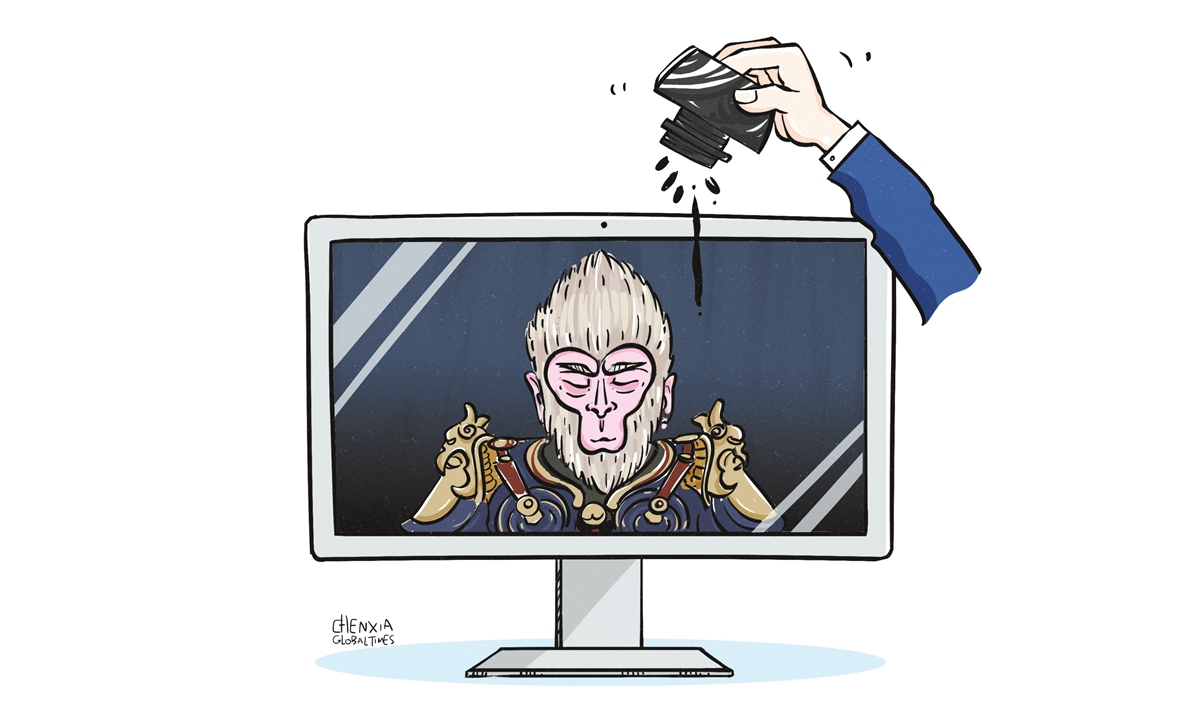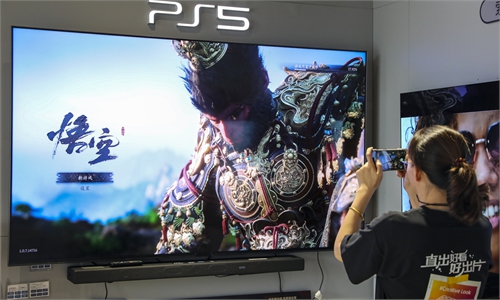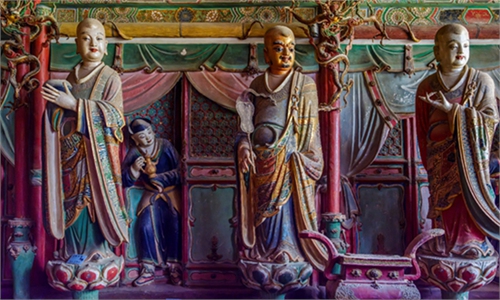CHINESE
state media threw its back behind China’s most successful single-player
video game to date, saying its adaptation of the Ming dynasty epic
Journey To The West would force Western players to learn more about the
country’s culture.
Black Myth: Wukong, based
on a mythical monkey king from a Chinese literary classic who can
shape-shift into humans, animals and inanimate objects, was being played
last Wednesday by 2.2 million concurrent players on Steam, a major
online gaming platform, a day after its release.
“Chinese
players in the past have gone through this process of cross-cultural
understanding, now it is the turn of overseas players to learn ... and
understand Chinese traditional culture,” China Central Television wrote
in a blog.
Drawing heavily on the story of
the beloved magical monkey, Sun Wukong, who acquires supernatural powers
by practising Taoism, Black Myth: Wukong can only be enjoyed if players
are familiar with the plot of the 16th century classic, the national
broadcaster said.
The Pc/console-based game
was launched last week by Game Science, a Tencent-backed startup, to
much fanfare on Chinese social media. Hashtags on the video game
accumulated 1.7 billion views on China’s X-like microblog Weibo.
“This
release marks a bold foray by Chinese game developers into a market
long dominated by Western triple-a titles,” the official Xinhua news
agency wrote in an editorial last week.
“With this breakthrough, the default language of a triple-a game is no longer English, but Chinese,” it added.
Black
Myth: Wukong would “attract more global players to pay attention to
domestic games”, said analysts at Shanghai-based Topsperity Securities,
adding that companies across a wide range of sectors could expect to
profit off intellectual property tie-ins.
Ride-hailing
firm Didi, Lenovo Group and Luckin Coffee are incorporating elements
inspired by Black Myth: Wukong into their promotional campaigns.
Black
Myth: Wukong was widely lauded as China’s first AAA game – high
development costs, long production cycles and immense investment, with
industry analysts viewing its sudden fame and popularity as marking an
inflection point for China’s PC/ console gaming sector.
Pre-sales,
which began in June, had reached Cny400mil (Us$56mil/rm245mil) as of
last Tuesday when the game was launched, according to Citi.
Feng
Ji, founder of Game Science, told Xinhua in an interview that the
global attention has surpassed his initial expectations and that his
team would develop more of such games.
“We
see signs that the government is recognising the industry’s potential
value for exports and culture, notably the interview of Game Science’s
founder by state media Xinhua agency ahead of its game launch,” Goldman
Sachs wrote in a note.
Goldman added that it expected more Chinese AAA games to enter the global market in the future.
Be
that as it may, gaming stocks were unchanged last Wednesday, with
concept stocks linked to the game’s development down after having risen
considerably over the past month.
Unlike
other Chinese games that are played on mobile devices and involve
endless in-game micro-transactions, “Black Myth: Wukong” is a one-time
purchase with a price tag of CNY268 (RM165) for the standard version and
CNY328 (RM200) for the premium.
“It is
unclear whether Black Myth: Wukong’s business model can bring more
profits ... the important thing ... is that China is finally getting
it’s own AAA game that can excite the world,” stateowned tabloid Global
Times cited an industry insider as saying.
“Global
players will be able to get a deeper understanding of traditional
Chinese culture while having fun,” Global Times declared. – Reuters
Illustration: Chen Xia/GT
Black Myth: Wukong, a
video game that embodies the dream of Chinese gamers to have a game
deeply rooted in Chinese culture and on par with the best games
globally, has been a major hit since its debut. However, just like every
success China has had, Western media's criticism is never far behind.
Even if Western media can't deny the game's global success, there is often a classic "but" in their reports. "'Black Myth: Wukong'
Is a Hit. But Why Is the Game So Controversial?" US magazine Rolling
Stone asked recently, stressing that the game lacks "inclusivity and
diversity." A BBC headline was entirely negative: "Blockbuster Chinese
video game tried to police players - and divided the internet."
The
criticism about inclusivity and diversity appears to be a rushed
judgment from journalists or commentator who spent only a few hours with
the game. If they played longer, they would see that female characters
do appear over time. The point it, true players don't really care about
it. As some overseas netizens put it - it's a game, not a movie, it
doesn't need to cater to Western political correctness by including
diverse female characters or transgender individuals.
The recent attacks from some Western media outlets come after Black Myth: Wukong
has challenged the gaming ecosystem in the Western world, Shen Yi, a
professor at Fudan University, told the Global Times. In this system,
consulting firms like Sweet Baby Inc offer costly diversity, equity, and
inclusion advice for video games. Black Myth: Wukong, however,
not only reportedly showed no interest to obediently conform to
distorted rules but also achieved unprecedented success. This has
sparked both envy and fear among those who control the ecosystem and led
to the recent attacks focused on gender, diversity, and inclusivity.
Moreover, the radar of some anti-China forces is triggered when Black Myth: Wukong
is increasingly considered as a symbol of China's soft power, prompting
foreign players to rediscover China's capabilities while promoting the
global spread of traditional Chinese culture. The BBC - which cannot
accept the fact that China's image is improving through the game -
wrongly accuses China of censorship to dampen international perceptions
of China.
Their strategy of attacking the game is just the same
old Western tactic - politicizing every Chinese achievement, even in the
realm of gaming. What's next? Will they portray the Chinese gaming
industry as a "threat" in the future?
What they fail to grasp is
that whether players choose to pay for a game is never about ideology,
or political correctness over diversity. The game's quality is what
truly matters. Feng Ji, founder of the game's developer Game Science,
recently said that cultural export was not the initial goal of the game.
Yet he believes that if the quality is high enough, it will naturally
radiate to the overseas market.
He made it. Black Myth: Wukong's high quality has fueled its popularity. Many international players enjoy the game, which has inspired their curiosity about Journey to the West and Chinese culture.
If Black Myth: Wukong hadn't been successful, if it hadn't topped sales charts worldwide, and
if it had been just an average game, would Western media even care
about it? They would probably just claim that China has no AAA game. The
fact that they attack the game proves its success and highlights the
persistent cultural hegemony and arrogance of some in the West. While
Chinese people have long been opening up to the world, some Westerners
are still unwilling to recognize China as it is.
RELATED ARTICLES
Long-awaited Chinese game Black Myth: Wukong, inspired by the story of Monkey King, topped PC gaming platform Steam's
Since China's first AAA game, Black Myth: Wukong, was officially released at 10 am on August 20, its











